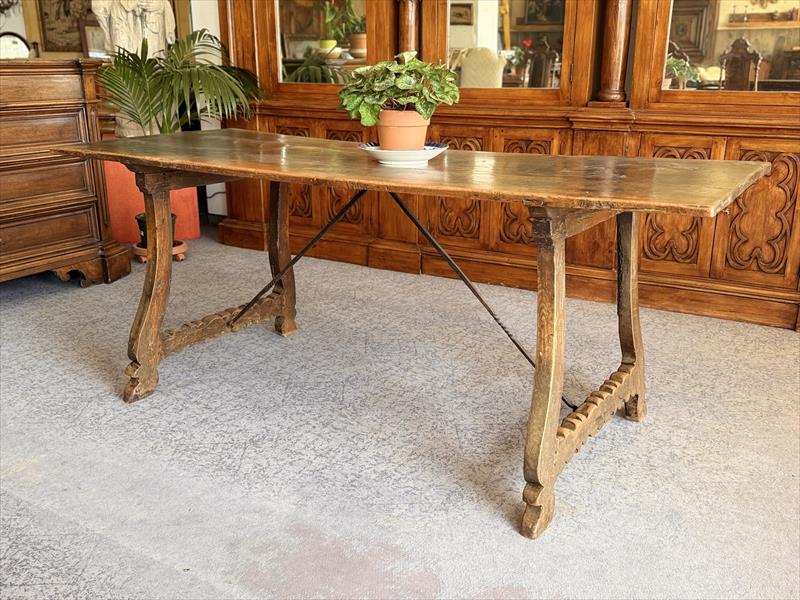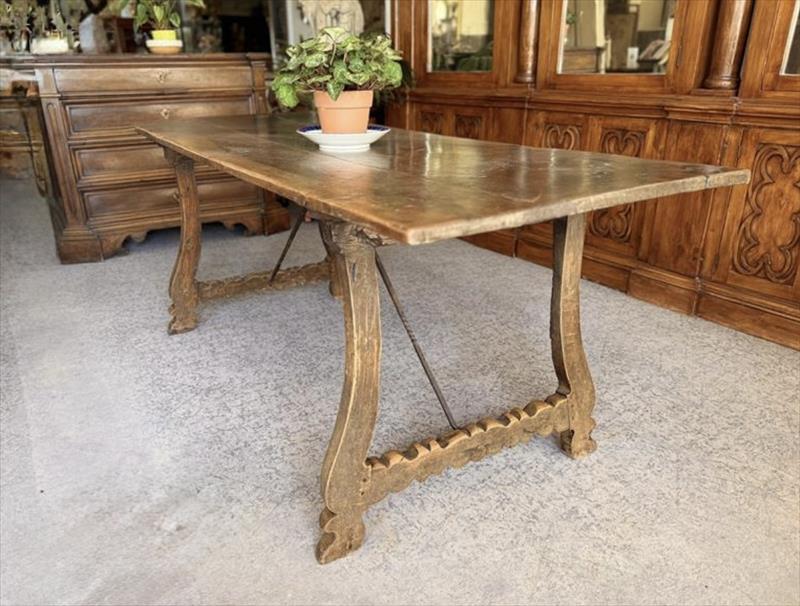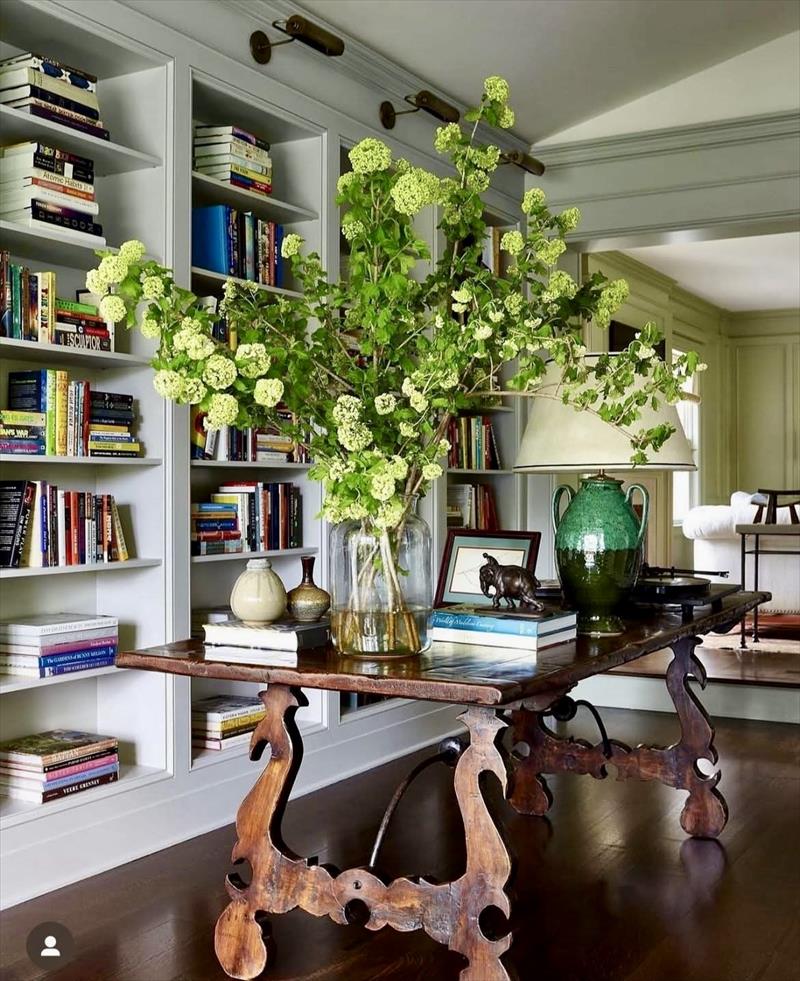Catalan walnut table, 17th century
A table that traveled with the law
A rare example of a notary’s writing table from 17th-century Catalonia. Crafted entirely from solid walnut, it is sturdy, austere, and elegant without pretension. The lyre-shaped legs, finely carved, are joined by two hand-forged iron stretchers — the most functional and telling detail. When loosened, they allow the legs to fold inward, making the table easier to transport from one place to another.
This is not just an antique piece, but an object rich in function and symbolism. A “nomadic” table, made for action rather than decoration — the inseparable companion of a 17th-century notary, when legal knowledge was carried from town to town. Notaries didn’t wait for clients in a fixed office; they went to them — across farms, castles, monasteries, and market squares. Wherever a will needed drafting, a contract signing, or a dispute settling, the notary arrived. Along with him: his ink box, his ledgers… and his table.
Today, with its well-balanced proportions, this piece is ideal as a striking element in a refined study, a dramatic entryway, or a cultured living space.
Entirely intact and untouched, it retains its original patina — a surface rich with traces of use and time. It has been gently cleaned, structurally consolidated, and finished with warm beeswax to revive its tone without erasing its history.
A sculptural presence, for those who seek authenticity, the weight of time, and the quiet dignity of an object that once bore witness to documents written by hand — and meant to last.
- Material: solid walnut wood
- Size: cm 80 x 196 x 80 h
- Condition: Restored
- Period: 17th century
- Style: Louis XIV
- State: Optimal conditions




